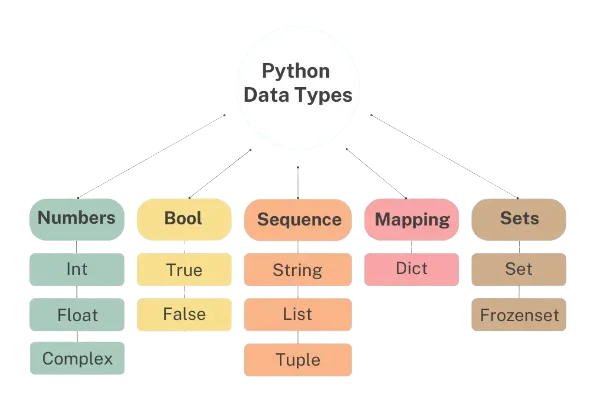Table of Contents
ToggleIntroduction
Big Data Technology is a set of tools, techniques, and infrastructure that are used to collect, store, analyze, and manage large and complex datasets. With the explosion of digital data from various sources such as social media, mobile devices, and the Internet of Things (IoT), organizations are turning to Big Data Technology to gain insights, make informed decisions, and gain a competitive edge.
It involves various components such as data storage systems, data processing frameworks, data analytics tools, and machine learning algorithms. These components work together to handle massive volumes of data, process it in real-time or near-real-time, and extract meaningful insights from it.
The applications of it are vast and varied, from business intelligence and marketing analytics to healthcare and scientific research. By leveraging the power of Big Data Technology, organizations can gain valuable insights into customer behavior, market trends, operational efficiency, and more, which can help them make data-driven decisions and improve their bottom line.
In today’s data-driven world, It has become a critical tool for organizations looking to stay competitive and innovative. As the volume and complexity of data continue to grow, It will play an even more important role in enabling organizations to harness the power of data and unlock new opportunities.
How is Big Data Technology Transforming Businesses and Industries?
Big Data Technology is transforming businesses and industries in several ways. By processing and analyzing vast amounts of data in real-time, It enable organizations to gain insights into customer behavior, market trends, and operational efficiency. These insights can help organizations make data-driven decisions and improve their overall performance.
For example, It is being used in the retail industry to analyze customer data and identify patterns in their shopping behavior. This information can be used to personalize marketing campaigns and promotions, improving customer engagement and loyalty.
In the healthcare industry, It is being used to analyze patient data to improve treatment outcomes and develop new drugs and therapies. By analyzing large datasets of patient information, healthcare providers can identify new trends and patterns that can lead to more effective treatments and better patient outcomes.
Big Data Technology is also transforming the financial industry by enabling banks and other financial institutions to detect fraud and manage risk more effectively. By analyzing large datasets of financial transactions, these institutions can identify suspicious activity and take action to prevent fraud and mitigate risk.
Overall, It is transforming businesses and industries by enabling organizations to make data-driven decisions, improve their operational efficiency, and gain a competitive edge. As more organizations adopt it, we can expect to see even more transformative impacts across a wide range of industries.
Also, have a look at data science course in kerala
The Components of Big Data Technology

It comprises three main components: infrastructure, analytics, and applications.
Infrastructure refers to the hardware and software used to store and manage large volumes of data. This includes storage systems, such as distributed file systems and NoSQL databases, and computing frameworks, such as Hadoop and Spark, used to process and analyze the data.
Analytics refers to the tools and techniques that are used to extract insights from the data. This includes data mining, machine learning, natural language processing, and other statistical techniques that enable organizations to identify patterns and trends in the data.
Applications refer to its specific use cases, such as marketing analytics, financial risk management, and fraud detection. Applications typically combine infrastructure and analytics components to enable organizations to address specific business challenges.
Together, these three components form the foundation of Big Data Technology. By leveraging powerful computing infrastructure, sophisticated analytics tools, and innovative applications, organizations can gain valuable insights from their data, make data-driven decisions, and improve their overall performance.
Give a visit to data analyst course in pune
Real-World Examples with Success Stories and Case Studies

There are many real-world examples of Big Data Technology in action, with success stories and case studies across a variety of industries.
One example is Netflix, which uses Big Data Technology to personalize the viewing experience for its users. By analyzing user data such as viewing history and ratings, Netflix is able to recommend personalized content to each user, increasing engagement and customer satisfaction.
Another example is Amazon, which uses Big Data Technology to optimize its supply chain and improve operational efficiency. By analyzing large volumes of data on customer orders and inventory levels, Amazon is able to predict demand and optimize its inventory management, reducing costs and improving customer satisfaction.
In the healthcare industry, Big Data Technology is being used to improve patient outcomes and develop new therapies. For example, the Mayo Clinic uses Big Data Technology to analyze patient data and identify patterns in disease progression, which can help doctors develop more effective treatments.
In the financial industry, Big Data Technology is being used to detect fraud and manage risk. For example, Visa uses Big Data Technology to analyze large volumes of financial transaction data, detecting fraudulent activity and reducing financial losses.
Overall, these success stories and case studies demonstrate the transformative power of Big Data Technology, enabling organizations to gain valuable insights from their data and improve their overall performance.
Understanding the Role of Data Scientists in Big Data Technology

Data scientists play a critical role in Big Data Technology. They are responsible for analyzing large volumes of data, extracting insights, and developing models and algorithms that enable organizations to make data-driven decisions.
Data scientists use various tools and techniques to analyze data, including statistical analysis, data mining, machine learning, and natural language processing. They are also skilled in programming languages such as Python and R and database technologies such as SQL and NoSQL.
Data scientists work closely with business stakeholders to understand their needs and develop solutions that address specific business challenges. They also work with data engineers and other technical teams to ensure data is properly collected, stored, and processed.
In addition to technical skills, data scientists also possess strong analytical and problem-solving skills and excellent communication and collaboration skills. They are able to translate complex technical concepts into understandable insights for non-technic
al stakeholders.
Overall, data scientists play a critical role in Big Data Technology, helping organizations to unlock the value of their data and make data-driven decisions that drive business success.
Suggested Blogs:
- BIG DATA | Complete Guide, Scope, Growth, Salary
- Characteristics of Big Data | 5 Types & Benefit
The Challenges and Limitations of Big Data Technology
While Big Data Technology offers many benefits, there are also challenges and limitations that organizations must address. Three of the biggest challenges are security, privacy, and governance.
Security is a major concern, as large volumes of data can be attractive targets for cyber attacks. Organizations must ensure that their data is properly secured, with access controls, encryption, and other security measures to prevent unauthorized access.
Privacy is also a concern, as it can enable organizations to collect and analyze large volumes of personal information. Organizations must ensure that they comply with data privacy regulations and protect individuals’ data.
Governance is another challenge, as organizations must ensure that their Big Data Technology is being used ethically and responsibly. This includes ensuring that data is being collected and used by regulatory requirements, as well as ensuring that data is being used in ways that align with ethical principles and values.
In addition to these challenges, there are also limitations to it. One limitation is the quality of the data, as data quality issues can lead to inaccurate insights and decision-making. Another limitation is the cost and complexity of implementing and maintaining it, which can be a barrier for some organizations.
Overall, while it offers many benefits, organizations must be aware of the challenges and limitations and take steps to address them in order to maximize the value of their data.
Big Data Technology Trends to Watch

Big Data Technology is constantly evolving, with new trends and technologies emerging all the time. Here are three trends to watch:
Machine Learning: Machine learning is a subfield of artificial intelligence that involves training machines to learn from data and make predictions or decisions based on that learning. With it, machine learning algorithms can be used to analyze large volumes of data and extract insights that would be difficult or impossible for humans to identify.
Internet of Things (IoT): IoT refers to the network of physical devices that are embedded with sensors, software, and connectivity that enable them to collect and exchange data. With it, organizations can collect and analyze large volumes of data from IoT devices to gain insights into consumer behavior, product usage, and other key metrics.
Cloud Computing: Cloud computing refers to delivering computing services over the internet. With Big Data Technology, organizations can use cloud computing to store and process large volumes of data and access advanced analytics tools and platforms.
Overall, these trends are shaping the future of Big Data Technology and enabling organizations to unlock the full potential of their data. As these trends evolve, we can expect to see even more innovative applications in a wide range of industries and use cases.
Big Data Technology and the Future of AI
Big Data Technology and AI are closely linked, with Big Data providing the data that fuels AI algorithms and models. As AI advances, It will become even more important. Here are some opportunities and challenges to consider:
Opportunities
Better decision-making: With AI-powered by Big Data, organizations can make more informed and data-driven decisions.
Enhanced customer experiences: AI can be used to personalize customer experiences based on data collected by Big Data Technology.
Improved operational efficiency: AI can help organizations optimize operations and reduce costs by identifying inefficiencies and areas for improvement.
Challenges
Data quality and bias: It can collect large volumes of data, but this data may not always be high quality or unbiased. This can lead to inaccurate or biased AI models.
Privacy and security: As mentioned earlier, security and privacy are challenges in Big Data Technology, and this is also true for AI. Organizations must ensure that they are protecting sensitive data and complying with privacy regulations
Talent shortage: AI requires specialized skills and expertise. There is a shortage of talent in these areas, which can make it difficult for organizations to implement and maintain these technologies.
Overall, the opportunities of Big Data Technology and AI are vast, but there are also challenges that must be addressed to ensure that these technologies are used ethically and responsibly.
How to Implement Big Data Technology in Your Organization
Implementing Big Data Technology can be complex, but several best practices and strategies can help organizations succeed. Here are a few:
Start with a clear goal: Organizations should identify their goals and what they hope to achieve before implementing it. This can help guide the implementation process and ensure the technology is used effectively.
Focus on data quality: It is only as good as the data it collects. Organizations should focus on collecting high-quality data that is relevant to their goals.
Choose the right tools and platforms: There are many Big Data tools and platforms available, and it’s important to choose the ones that are best suited to your organization’s needs and goals.
Invest in talent: It requires specialized skills and expertise. Organizations should invest in hiring or training staff who have the necessary skills to implement and maintain these technologies.
Ensure security and compliance: As mentioned earlier, security and compliance are important considerations when implementing it. Organizations should ensure that they are protecting sensitive data and complying with relevant regulations.
By following these best practices and strategies, organizations can implement Big Data Technology effectively and unlock the full potential of their data.
Ethical Considerations in Big Data Technology
It presents some ethical considerations that organizations must address to ensure that they are using the technology responsibly. Here are a few key ethical considerations:
Privacy: It can collect large amounts of personal data, and organizations must ensure that they protect this data and comply with relevant privacy regulations.
Bias: Big Data can contain biases that AI algorithms can perpetuate. Organizations must ensure that their AI models are unbiased and do not discriminate against certain groups.
Transparency: As Big Data is used to making important decisions, organizations must be transparent about the data they use and the algorithms they employ.
Ownership: Big Data raises questions about who owns the data and who has the right to use it. Organizations must ensure that they are using the data ethically and not infringing on the rights of others.
Orga
nizations can use Big Data Technology responsibly and balance innovation with responsibility by addressing these ethical considerations. It’s important to remember that the responsible use of Big Data Technology benefits individuals and society as a whole and helps organizations build trust and maintain their reputation.
Conclusion
In conclusion, Big Data Technology has revolutionized the way organizations collect, store, and analyze data. With the exponential growth of data, Big Data Technology has become essential for businesses to stay competitive and make informed decisions. By using it, organizations can gain valuable insights, improve their products and services, and optimize their operations.
However, implementing Big Data Technology is not without its challenges. Organizations must consider the ethical and legal implications of collecting and using large amounts of data and ensure the security and privacy of that data. They must also address the challenges of bias, transparency, and ownership.
Despite these challenges, the potential benefits of Big Data Technology are vast. As the technology continues to evolve, organizations can expect to see new innovations in machine learning, IoT, and cloud computing that will further enhance its capabilities of it.
Overall, Big Data Technology is a powerful tool that organizations can use to drive innovation, improve efficiency, and make better decisions. However, organizations need to approach technology responsibly, balancing innovation with ethical and legal considerations, to ensure its continued success in the future.
Frequently Asked Questions
What is Big Data Technology?
Big Data Technology refers to the hardware, software, and processes used to collect, store, and analyze large amounts of data from various sources.
What are some benefits of using Big Data Technology?
Big Data Technology enables organizations to gain insights from their data that were previously impossible. This can lead to improvements in decision-making, increased efficiency, and the development of new products and services.
What are some challenges of using Big Data Technology?
Challenges include managing and processing large amounts of data, ensuring data security and privacy, and addressing ethical and legal concerns related to data collection and use.
What are some common Big Data Technology applications?
Common applications include predictive analytics, customer relationship management, supply chain management, and fraud detection.
What skills are needed for a career in Big Data Technology?
A career in Big Data Technology requires a combination of technical skills, such as data analysis and programming, and soft skills, such as problem-solving and communication. In addition, familiarity with data visualization tools and statistical analysis techniques is also important.













